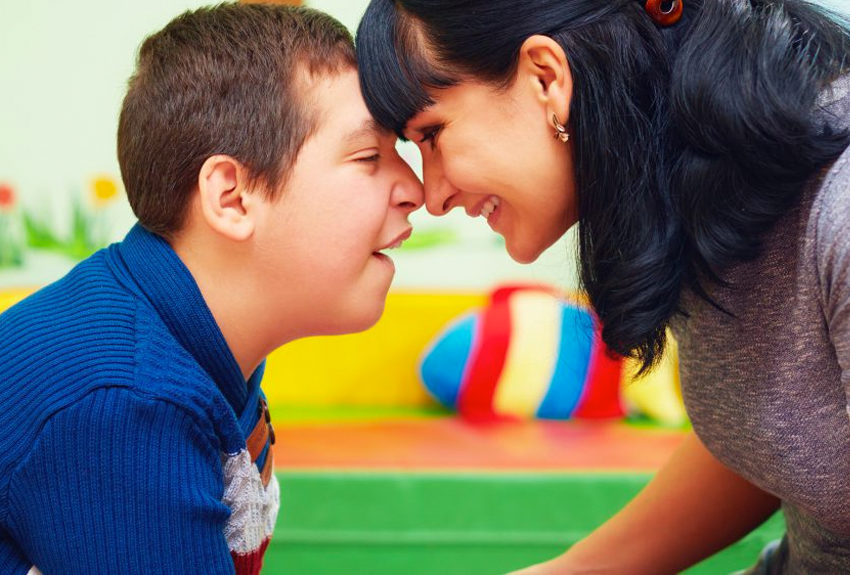Intellectual and Developmental Disabilities (I/DD) registered nurses (I/DD RNs) work with individuals that have developmental disabilities, such as Autism Spectrum Disorder, Down Syndrome, Fragile X syndrome, cerebral palsy and other developmental disorders.
I/DD nursing is demanding. I/DD RNs may manage several individuals on different medications who need constant monitoring and care. They can face problems communicating with people with autism spectrum disorder and other special needs, which can make their work challenging.
Yet, I/DD nursing is very rewarding. In helping people with significant needs, I/DD RNs may work with the individuals they serve, for years – even throughout their lives building strong relationships helping them to live their lives more fully.1 I/DD RNs become familiar with their medical status, medications, and health histories. They may also bond not just with the individuals they care for, but with their families too, sometimes even being treated like another family member.
The requirements and roles of an I/DD RN
An I/DD RN must meet training,licensing and registration requirements, which may vary from state to state. An I/DD RN usually attains a two-year associate nursing degree or a four-year bachelor of science nursing degree. After graduation, I/DD RNs must become licensed through taking the National Council Licensure Examination Registered Nurse (NCLEX-RN) exam or another acceptable licensing test.3
In New York, the state Education Department requires completion of child abuse reporting and infection control coursework. I/DD RNs also must register with the state. The New York State Education Department requires I/DD RNs who don’t have prior developmental disabilities training to complete an orientation within three months of employment. To become eligible for certification through the Developmental Disabilities Nurses Association (DDNA), I/DD RNs must care for individuals with I/DD for two or more years. Though the DDNA certification isn’t required, this credential shows a nurse has received I/DD training, indicating additional clinical competence and experience.
I/DD RNs provide healthcare and social support in hospitals, schools, workplaces and homes. They work closely with medical personnel, social workers, support staff and therapists to give the individuals they serve who live independently, in a group setting or state-run facility a decent quality of life.2 I/DD RNs may also volunteer as community advocates and serve as points of contact for the families of the individuals they care for. They manage caseloads, develop and install plans of nursing services, and handle situations that require critical thinking.
An I/DD RNs’s main duties include4:
- Caring for individuals with physical, mental, or behavioral disabilities of all ages
- Helping with feeding and controlling bodily functions
- Supporting and encouraging individuals to do things on their own
- Teaching the individuals they care for and their families about intellectual and developmental disabilities
- Assisting with language skills and other forms of communication
- Working with parents and caregivers to develop an evidence-based plan for school or work
- Coordinating various aspects of care
- Analyzing health information and making recommendations
- Managing school or workplace health screenings according to established guidelines
- Developing health-related policies and procedures
- Referring the individuals they care for to other staff or services for developmental, social or mental health support
The I/DD RNs are also responsible for training direct care staff in nursing tasks or related care roles. The I/DD RN must review their performance to ensure it’s consistent with standards of care and training.
I/DD RNs play vital roles in the I/DD setting and in the lives of the individuals they care for, helping them function and maintain good health. At Citizen Advocates, our I/DD care focuses on a person’s whole health, not just their symptoms. Our I/DD RNs look at all of the needs of the individuals they care for, including their living environments. They act with empathy, dignity, and kindness to address physical and social well-being, and are dedicated to protecting and respecting the rights of those they treat.
Contact us today for more information about our I/DD and supporting services.


 Previous Post
Previous Post

